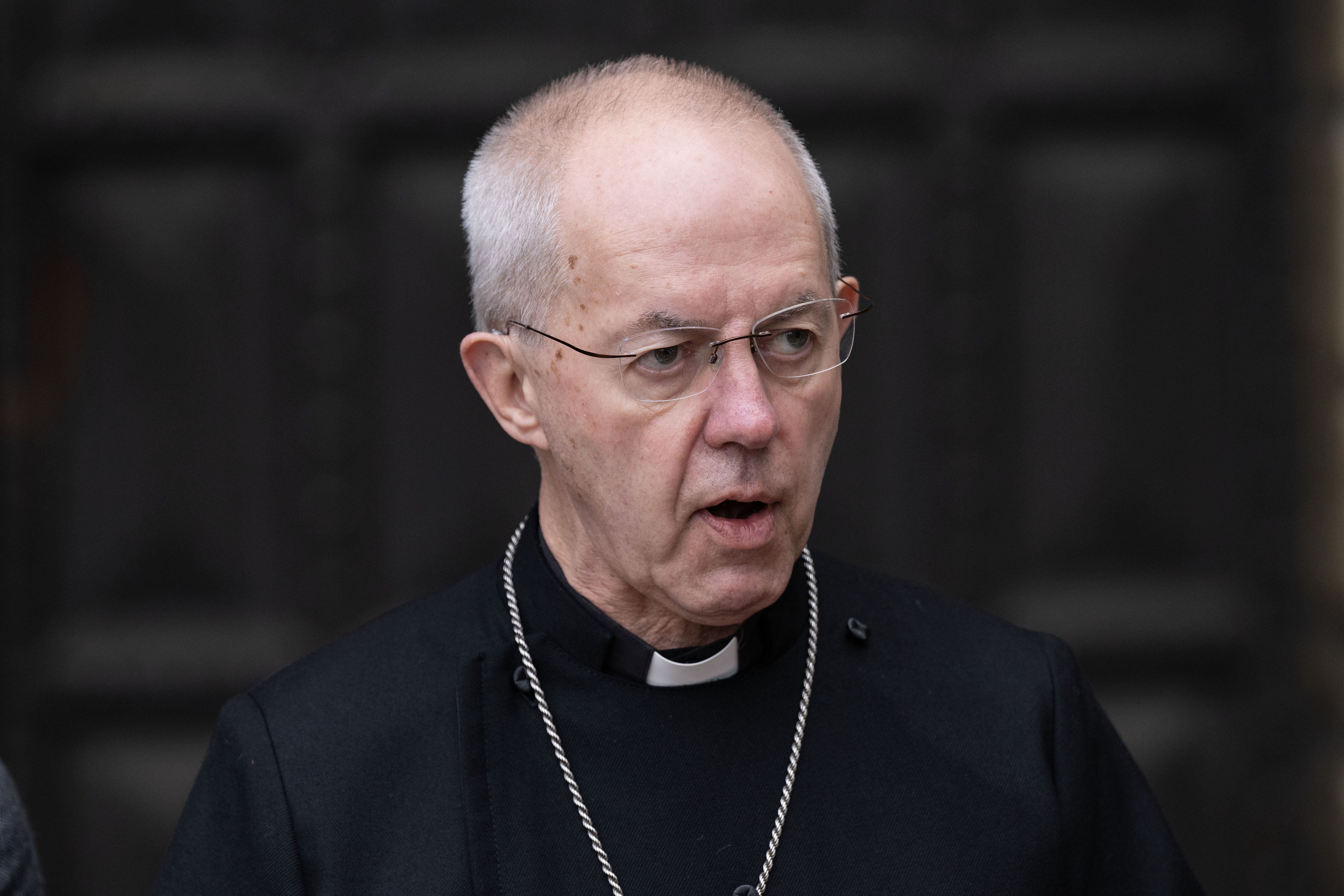Archbishops warn of ‘more division’ from Government’s extremism definition
Groups captured by the term are set to be effectively blacklisted by the Government and public bodies.

The Archbishops of Canterbury and York have warned the Government’s planned new definition of extremism risks “more division”.
Communities Secretary Michael Gove is expected to produce a new official definition of extremism later this week.
Groups captured by the term are set to be effectively blacklisted by the Government and public bodies, and cut off from public funding and engagement.
Mr Gove previously told the Sunday Telegraph that “good-hearted people” who have taken part in marches should be aware they could be “lending credence” to extremists.
The decision to produce a new definition of extremism comes after Prime Minister Rishi Sunak earlier this month used an address to the nation outside Downing Street to warn of “extremist disruption” and “forces here at home trying to tear us apart”.
Mr Sunak and his administration have been concerned about pro-Palestine protests – peaceful demonstrations, attended by hundreds of thousands of people across the UK since the Israel-Gaza conflict started in October, to call for a ceasefire – being hijacked by Islamists who want to spread messages of hate.
The Church of England’s most senior clerics have warned the new definition of extremism being worked on by ministers may threaten freedom of speech, worship and protest.
In a joint statement, the Most Reverend Justin Welby and the Most Reverend Stephen Cottrell said the “growing division between different communities in this country” is a threat to the country’s “rich diversity”.
They said: “How our leaders respond to this is far too important for a new definition of extremism to be its cure.
“Instead of providing clarity or striking a conciliatory tone, we think labelling a multi-faceted problem as hateful extremism may instead vilify the wrong people and risk yet more division.
“The new definition being proposed not only inadvertently threatens freedom of speech, but also the right to worship and peaceful protest – things that have been hard won and form the fabric of a civilised society.
“Crucially, it risks disproportionately targeting Muslim communities, who are already experiencing rising levels of hate and abuse.”
The archbishops continued: “We are concerned – like so many others – by its implications for public life.
“We join calls for the Government to reconsider its approach and instead have a broad-based conversation with all those who it will affect.
The UK has a proud history of welcoming people from all walks of life and celebrating diversity ... Our leaders should cherish and promote that – and pursue policies that bring us together, not risk driving us apart
“The UK has a proud history of welcoming people from all walks of life and celebrating diversity. We are a community of communities.
“Our leaders should cherish and promote that – and pursue policies that bring us together, not risk driving us apart.”
Speaking to BBC Radio 4’s Today programme on Wednesday, Mr Welby said: “It’s a general principle that extremism is a shapeshifter, it’s always moving around and changing itself, and it happens in all sorts of faith groups and it is a very dangerous problem indeed.
“I entirely agree that the problem has to be addressed. We see the fear of many, particularly Jewish groups and again Muslim groups, at the upsurge in antisemitic and Islamophobic behaviour.”
Bookmark popover
Removed from bookmarks